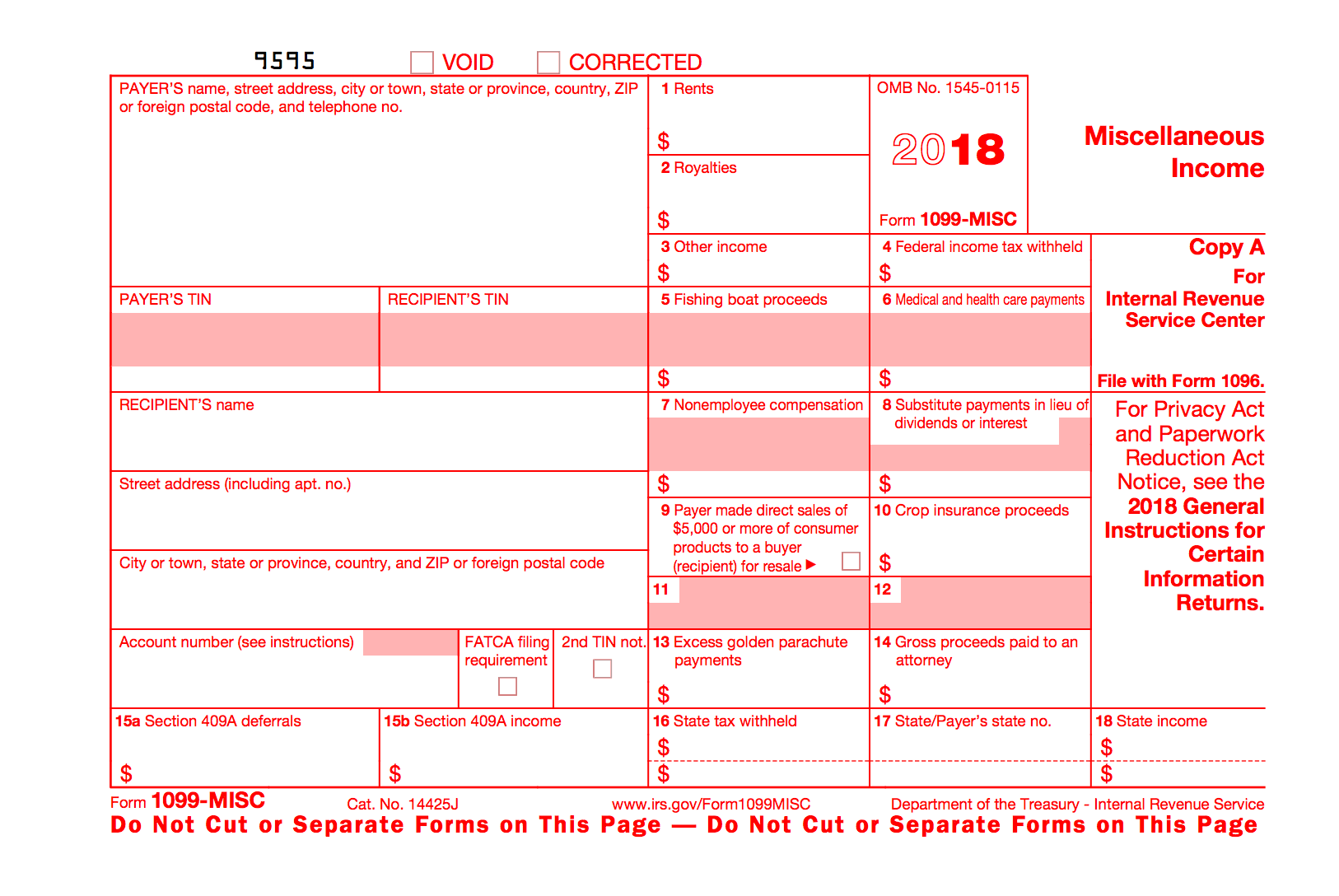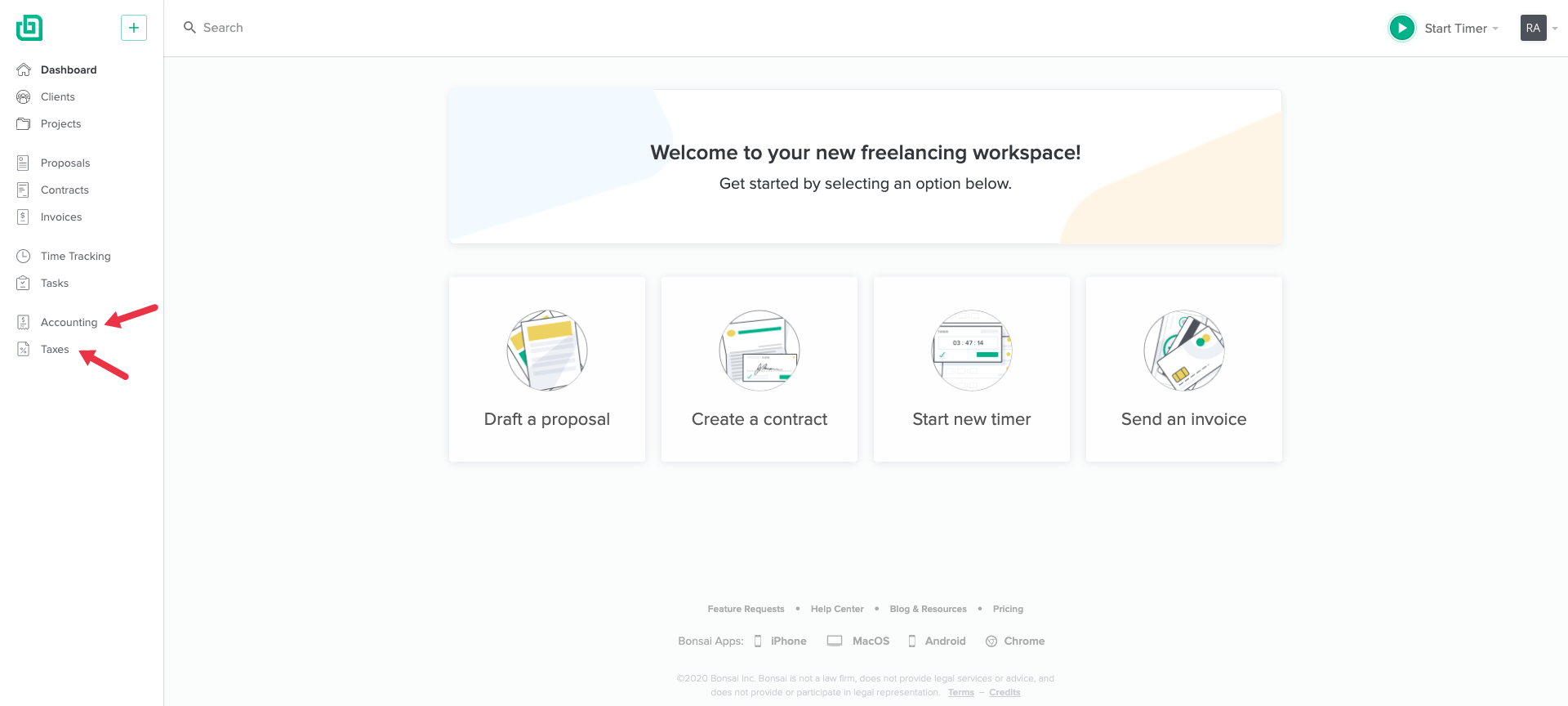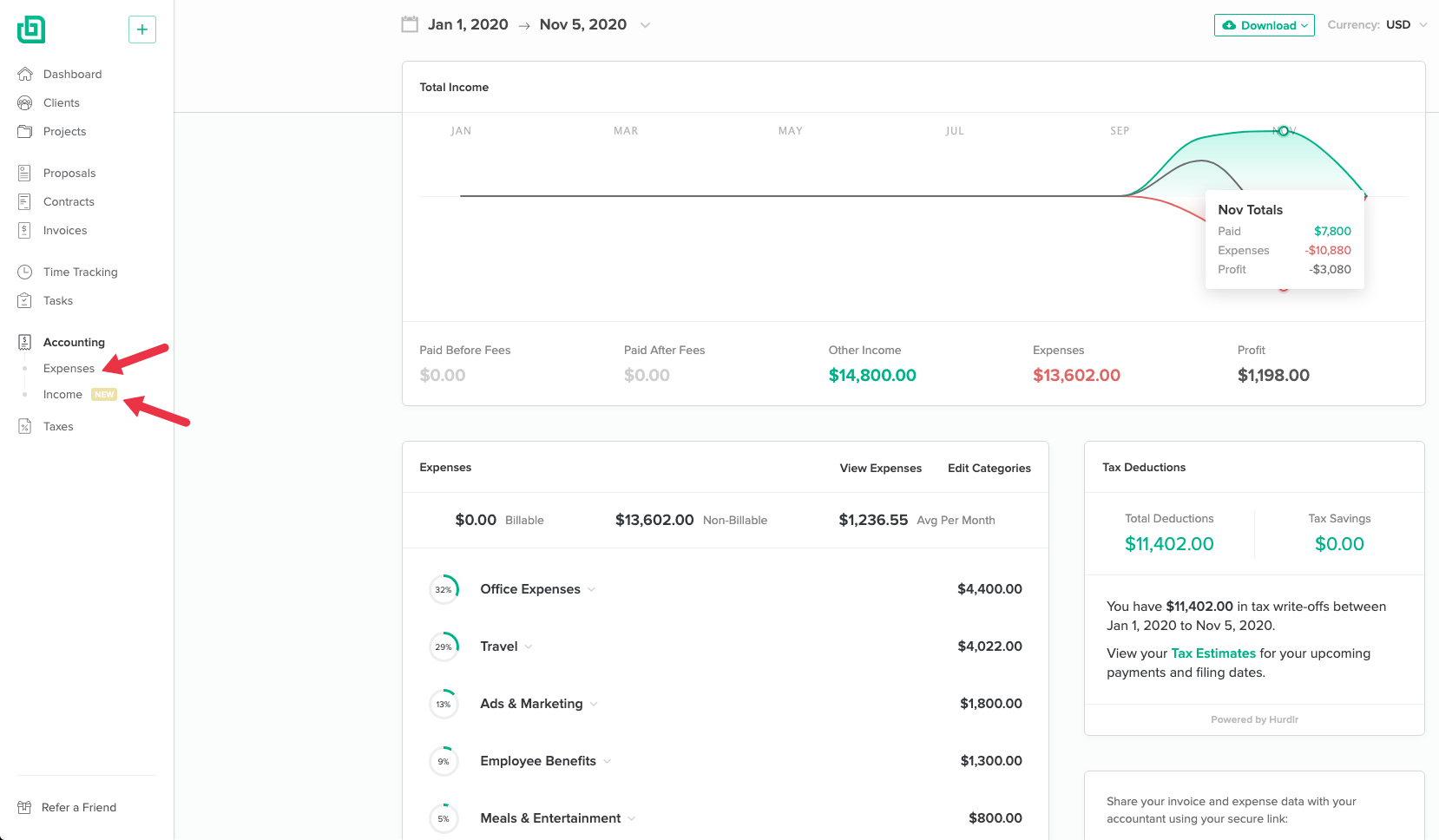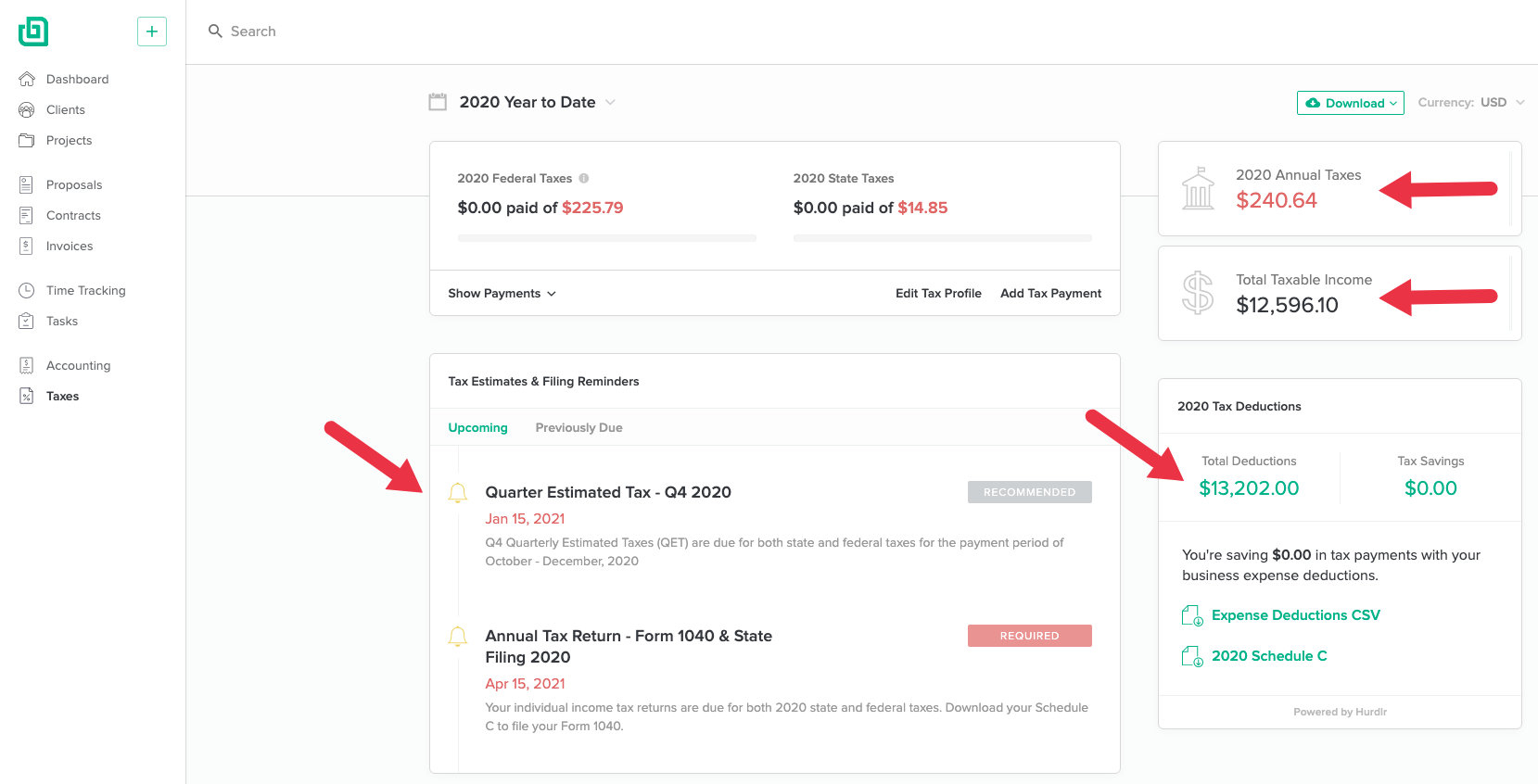Do you have a freelance consulting agreement template in place already who wants to know how to report your income or an aspiring consultant who wants to learn the ins and outs of running a consulting business? If it's the latter, you can read our guide on how to get into consulting to learn more about it. Otherwise, keep reading!
Before you can file your self employment taxes, you must ensure you have all of your invoice templates, forms, an independent contractor contract template, and records. One of the most essential forms to include in your tax calculations and filing is the Form 1099-MISC. This report, which is specific to independent contractors and freelancers, will be necessary for making sure all of the info on your tax return is accurate.
Note: Remember that you can use Bonsai tax to identify tax deductions and estimate quarterly taxes. Our app scans your bank/credit card statements to discover tax write-offs and maximize your deductions. Users save on average of $5,600. Try a 7-day free trial today.
1. What is the 1099-MISC?
This form is a simple statement that shows your personal info, address, and the Tax Identification Numbers of both you and your client. It also includes how much money you made from them during a tax year (provided you earned $600 or more with them.) Additional info that may be included on the form, while not typical, consists of any federal or state tax withholding.

Did you know that you can use Bonsai for accounting? Or that Bonsai can help you be prepared for your freelancer tax by providing tax estimates, filling date reminders, calculating your self-employment taxes, and identifying your tax write-offs?
Let's see how that works. First, head to your main Bonsai dashboard and have a close look on the left side - we'll be working with the accounting and taxes sections. First click on "Accounting".

Inside the accounting section, you'll see a breakdown of your income and expenses. Both can either be automatically imported from your bank account, or manually added. Work you got paid for via Bonsai will also be registered here.
Make sure this section is properly filled in and click on "Taxes" next.

This is where the magic happens: Bonsai will do all the calculations for you, and we'll provide you with an overview of your tax estimates, a list of tax 1099 deductions you can use for the upcoming tax season, and reminders for all the upcoming filling dates.

Simple, right? If you're ready to check out Bonsai and explore all the features, go ahead and sign up for the free trial!
2. How do I get it?
Every client or customer of your freelance business who has paid you wages of $600 or more are required by law to send you one of the 1099-MISC forms. These should be postmarked by January 31, 2018 for the 2017 filing year. You'll also get one from the bank or financial institutions if you earned more than $10 in royalty income.
While freelancing is the most common reason to get a 1099-MISC, there are other situations where you may get one issued to you. These include if you:
- received payment for prizes, awards, or legal services
- received fees, commissions, or rents as a non-employee
- received certain taxable medical and health care payments
- received excess “golden parachute payments” (not common)
This form should arrive via postal mail, but some companies are also using more high-tech ways to send you this info. You may also receive an email link to an encrypted payroll processing site and be asked to download it from there. You should not, however, be getting 1099-MISC information over a non-secured email or as an attachment to a message that is not encrypted.

3. What do I do if I don’t receive one?
Sometimes, these 1099 forms can get lost in the mail. If your bookkeeping records indicate that you earned $600 or more from one client and they didn’t pay you through a third-party processing vendor (such as PayPal), you should reach out and inquire. They may not be aware that they need to issue the form, or they may have sent it to the wrong address. There are still ways you can file taxes without a 1099.
If they insist that they do not need to issue you one, that’s OK. You can still report the income on your tax form under the additional income section. As long as you state all of the income received for the year on either the other income section or under a 1099-MISC, you will be fine. (Note that there is only a problem when you fail to report income from a 1099-MISC that a customer has reported to the IRS on a 1099-MISC. Since you are supposed to get a copy -- and the IRS a copy --, you would want this information to match.)
Remember, there are many reasons why people don't get 1099 forms too. For example, if you made less then $600 from a client or employer,
4. What do I do with it?
If you are using conventional tax software, you'll be asked to input the information from each 1099-MISC individually. If you work with a tax preparer, the forms are needed to do your taxes. You should always save your 1099-MISC forms for at least seven years after your taxes are filed, in the case that you are audited or need to correct or refile your returns.

5. Differences between 1099-MISC and 1099-K
Depending on how your clients issue payment, you may receive some 1099-K forms, as well. Credit card companies, and third-party payers such as PayPal and Stripe, will collect the information for all payments from clients made through their services and send you a 1099-K form if you meet both of the following thresholds:
- Your total revenue processed exceeds $20,000
- You have more than 200 sales transactions
If both of these apply, you should be getting a 1099-K. Note that the income represented on this form will likely be a total from all of your clients who used the payment processor, so you should also double check to be sure that you don't also get a 1099-MISC from any clients who used the processor.
(Note: In the case that you receive a 1099-MISC from a company who also reported the same income on a 1099-K, you could be in a position of double reporting and the IRS may think you made much more than you did. You should direct the client to read the instructions for 1099-MISC and explain that PayPal, for example, will be reporting and they should not.)
1099-K income has a special place in the tax form 1040 for reporting.
6. Should you be issuing a 1099-MISC?
While it's most common for a freelance to receive a 1099-MISC, there are also instances where you would issue one. If you used a VA or outsourced some work to another independent contractor, your payments to them may be subject to reporting on the form. If you paid a web designer $600 for your freelance writing website, for example, you would need to issue them a form.
Luckily, most all of the small business versions of the popular tax software programs have a function for generating and sending these forms. They will also provide you with instructions for mailing the copies to your contractor and the IRS. This is also why it is vital to have anyone you contract with to fill out a W9 form so that you’ll have all of the info needed for a 1099-MISC handy come tax time. Remember, you have until the end of January to send out the forms to the IRS and your workers!
Final thoughts
1099-MISC forms can be a little intimidating, but they are exciting, too. Remember that each one you get is a symbol of a client that was satisfied enough to pay you and that the more 1099-MISC forms you get each year, the greater your business was for that year! Some freelancers can receive up to twenty or more forms, so be sure that you organize them securely as soon as you get them and match them up to the income you received for the year. If you receive multiple forms, stay organized and file before the 1099 due date.
While it's rare, some clients make mistakes. If you see a discrepancy between the amount paid and the amount reported, speak up! Incorrect reporting can leave you on the hook for taxes you don't truly owe – or, worse yet – could put you in a position for an unwarranted audit. Be proactive about tracking all of your income and ensure that it meets the reporting provided by clients to the penny! (For those clients who paid you less than $600, you will still have to report their income, but need not worry about getting any forms.) Learning how to bill for consulting services correctly can help you avoid mistakes in paying your taxes. Check out our tax guide for 1099 consultants.
These forms are all part of running a freelance business, and you should embrace them. By preparing a bit and keeping good records, they can make your tax filing much more manageable. Some tax software programs even remember the info on each 1099-MISC from year to year, making it a seamless process to report annually.
Explore Bonsai's freelance suite and start tracking your expenses (without manually doing it with an excel spreadsheet), identify all eligible tax deductions, and estimate quarterly taxes - sign up for a free trial.






